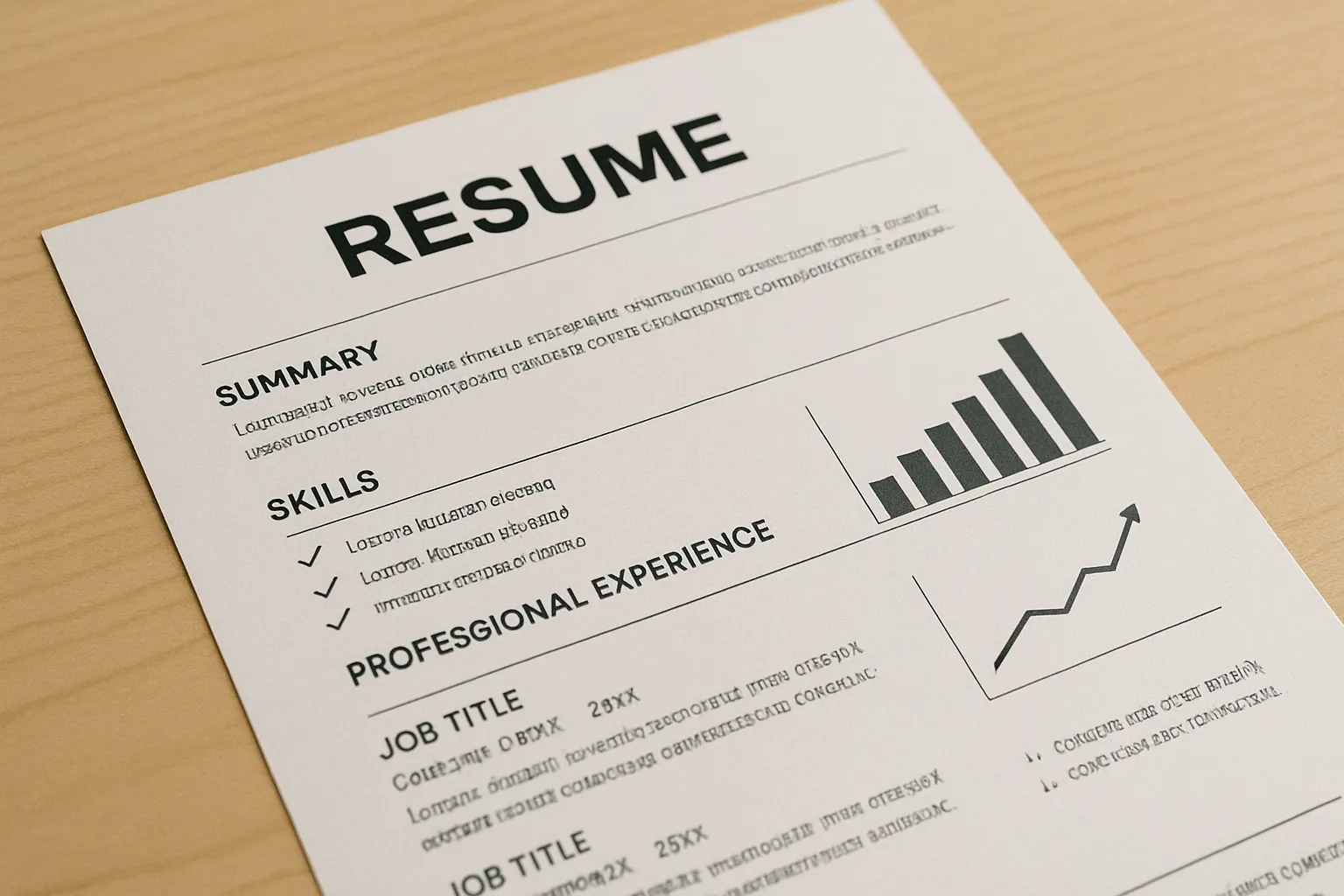Perfect Resume for Freshers – Your Ultimate Guide to Crafting a Standout Job Application

 Written by
Written by

Introduction to Resume for Freshers
Creating a compelling resume for freshers is more than just listing your educational qualifications and skills; it’s about presenting yourself as the ideal candidate in a competitive job market. Whether you are seeking your first entry-level job, an internship, or transitioning into a new career, your resume acts as a powerful career document that showcases your potential. This comprehensive guide explores everything you need to know about designing an effective resume for freshers with no experience, including formats, templates, tips, and additional sections that can elevate your application to professional standards.
In today’s fast-paced hiring environment, recruiters scan dozens of resumes daily. Therefore, your resume for freshers must be optimized to pass through applicant tracking systems (ATS), highlight your relevant skills, and make a memorable impression. From understanding essential components like the professional summary and educational background to choosing the right layout design and personalizing your career objectives, this guide aims to equip new graduates and degree students with the tools they need to craft a job application that stands out.
Let’s dive into each facet of creating a resume for freshers that not only captures attention but also opens doors to career opportunities. Whether you need a resume for freshers PDF, a free resume template, or guidance on keyword optimization, this detailed article ensures you approach your job search strategy with confidence and professionalism.
Understanding the Importance of a Resume for Freshers
A resume for freshers is often the first point of contact between a recent graduate or student and a potential employer. It serves as your personal marketing tool, reflecting your academic achievements, skills, and aspirations in a concise yet impactful way. For freshers with no experience, crafting an effective resume can sometimes seem daunting but understanding its significance is crucial.
Employers use your resume to evaluate whether you possess the basic competencies needed for the role and whether you align with their organizational culture. Even without extensive work history, a well-structured career document demonstrates your motivation, learning aptitude, and potential contributions. Moreover, a compelling resume for freshers can compensate for the lack of professional experience by emphasizing transferable skills, relevant projects, and certifications.
This section discusses why a tailored and polished resume is vital, especially for those entering the job market as degree students or recent graduates. We will explore how a strategic presentation of your strengths can significantly influence your interview chances and career trajectory.
The Role of a Resume in Job Applications
The primary function of a resume in any job application is to provide a snapshot of your qualifications and suitability for the role. For freshers, this document takes on added importance because they often lack extensive work experience to showcase. As such, the focus should be on highlighting educational achievements, internships, voluntary activities, and skill sets that demonstrate readiness to learn and adapt.
An effective resume acts as your personal elevator pitch—quickly communicating your value proposition to recruiters. It helps hiring managers shortlist candidates for interviews based on initial impressions. In a competitive landscape, a resume for freshers must stand out through clarity, relevance, and professionalism.
Furthermore, in many companies, automated ATS scans filter applications before human eyes see them. Therefore, optimizing your resume for freshers with relevant keywords, clear formatting, and appropriate structure increases the likelihood of passing these filters. A strong career document not only reflects your credentials but also showcases your understanding of what employers seek in entry-level candidates.
Why Freshers Need a Strong Resume
Freshers often underestimate the importance of a meticulously crafted resume. They might assume that a lack of experience diminishes their chances, but in reality, a carefully prepared resume for freshers levels the playing field. It allows you to present your potential, enthusiasm, and willingness to grow attributes highly valued in entry-level roles.
Having a strong resume offers multiple advantages: it boosts your confidence during job applications, clarifies your career goals, and provides a framework to articulate your skills convincingly. Additionally, a persuasive professional summary or career objective statement can immediately capture the recruiter’s attention, making your application memorable.
Most importantly, a solid resume for freshers prepares you for interviews by forcing you to reflect on your skills, projects, and aspirations. It also serves as a benchmark to tailor your responses, ensuring consistency across your job application journey. Ultimately, investing time in developing a compelling resume is an investment in your future career prospects.

Common Challenges Faced by Freshers
Despite the importance of a well-crafted resume, freshers face several challenges: limited experience, uncertainty about what to include, and difficulty in choosing the right format. Many struggle to balance the emphasis between academic achievements and soft skills, often neglecting other essential parts like certifications or extracurricular activities.
Another common issue is crafting an objective statement or professional summary that effectively communicates ambition without sounding generic. Freshers may also find it challenging to optimize resumes with keywords for ATS compatibility, risking rejection if their resume appears unstructured or outdated.
Additionally, many new graduates are unsure about which resume format suits their profile whether a traditional, functional, or combination approach. Overcoming these hurdles requires strategic planning, awareness of current employment trends, and familiarity with best practices in resume writing.
By understanding these challenges, freshers can proactively address them, leveraging available resources such as free resume templates and online tools to produce a standout career document that improves their chances of landing interviews.
Key Components of a Freshers Resume
A resume for freshers needs to be comprehensive yet concise, structured to showcase your strengths within a limited space. Every section should serve a purpose—highlighting your capabilities, educational foundation, and potential contributions. Here, we explore each critical component that makes up an effective career document for entry-level candidates.
The core idea is to craft a professional resume that balances personal details with showcasing your skills, projects, and experiences relevant to desired roles. Each element should be tailored to the specific job application, enabling you to demonstrate both technical proficiency and soft skills.
Before diving into the individual components, it’s prudent to understand that the layout and formatting of your resume significantly impact readability and overall impression. Well-organized sections using a logical flow guide the recruiter seamlessly through your profile, emphasizing the aspects most relevant to the position.
Contact Information and Personal Details
Your contact details form the opening section of your resume and should be accurate, professional, and easy to locate. Include your full name, phone number, email address (preferably professional, e.g., firstname.lastname@gmail.com), and LinkedIn profile if available. Some applicants also add their city or state, especially if location is relevant to the job.
Avoid unnecessary details such as marital status, age, or photographs unless explicitly requested or culturally appropriate. Keep this section simple but complete, as it provides the means for recruiters to reach out.
Including a professional email address and ensuring your contact information is updated is crucial. Double-check for typos or outdated links. For resume for freshers pdf and word format, ensure this section remains visible and prominent at the top of the document.
Professional Summary and Objective Statement
This is your elevator pitch a brief, impactful paragraph summarizing your key strengths, career goals, and what you bring to the table. For freshers, the professional summary should focus on enthusiasm, willingness to learn, and relevant skills or projects.
Alternatively, an objective statement clearly states your career intentions and how you aim to contribute to the organization. Tailoring this section to match the specific job description increases your relevance and appeal.
Crafting a compelling professional summary involves highlighting unique qualities, notable academic achievements, and any internship or volunteer experience that aligns with the role. Use keywords from the job ad to optimize this section for ATS.
Educational Background and Relevant Coursework
Since experience may be limited, your educational background becomes a pivotal part of your resume. List your degrees, institutions attended, graduation dates, and academic performance (such as GPA, if impressive).
Including relevant coursework emphasizes specific knowledge areas pertinent to the job. For example, a computer science student might list courses like Data Structures, Programming Languages, or Database Management, demonstrating your theoretical foundation.
Highlighting academic projects associated with coursework offers concrete evidence of applied skills. Use bullet points to briefly describe what was developed, your role, and technologies used. This demonstrates initiative and practical exposure, which can significantly influence hiring decisions for freshers.
Skills List: Technical and Soft Skills
A well-curated skills list bridges your educational background and practical competence. Divide skills into categories such as technical skills, soft skills, language proficiencies, and tools/software expertise.
For technical skills, mention programming languages, software tools, or industry-specific technology stacks. Soft skills, including communication, teamwork, and problem-solving, are equally important, especially for entry-level roles requiring adaptability.
Using bullet points helps recruiters quickly assess your capabilities. Be honest and avoid overestimating your proficiency accuracy builds trust.
Academic Projects and Internship Experience
Projects and internships serve as real-world proof of your abilities. Describe academic projects by outlining the objective, your role, technologies employed, and outcomes achieved. Preferably, quantify results where possible, like improved efficiency or user engagement.
Internship experience, even if limited, adds significant value. Detail your responsibilities, learned skills, and any measurable impact. For example, “Developed a feature that reduced processing time by 20%” showcases tangible contributions.
If you haven’t completed internships, emphasize academic projects or volunteer work that demonstrate relevant skills, initiative, and commitment to growth. These elements collectively bolster your profile, making your resume more attractive to recruiters.
Different Formats for Fresher Resumes
Choosing the appropriate resume format is essential for effectively presenting your qualifications. Each format has its benefits and ideal use cases, especially when tailored for freshers. Understanding the nuances helps in selecting a template that highlights your strengths while minimizing perceived weaknesses.
The three primary formats traditional, functional, and combination offer different approaches to structuring your career document. Selecting the most suitable one depends on your background, the role you’re targeting, and the type of content you wish to emphasize.
In this section, we’ll analyze each format’s characteristics, advantages, disadvantages, and suitable scenarios, helping you decide which version aligns best with your profile and career objectives.
Traditional Resume Format
The traditional or chronological resume is the most widely recognized and straightforward format. It emphasizes your educational background and experience listed in reverse chronological order.
This format is particularly effective if you have some relevant internships or projects that build a narrative of continuous growth. For freshers, it works well if you possess a strong academic record and relevant experiences aligned with the job description.
The structure typically includes sections such as Contact Details, Professional Summary, Educational Background, Work Experience or Internships, Skills, and optionally Certifications and Hobbies.
Advantages include clarity and ease of scanning for recruiters who prefer chronological narratives. However, if experience is minimal, this format might make gaps appear more evident, so it’s essential to highlight projects and skills effectively.
Functional Resume Format
This format focuses on skills and accomplishments rather than chronological work history. It groups similar skills together under thematic categories, making it suitable for freshers with limited or unconventional experience.
The functional resume emphasizes what you can do rather than when and where you learned it. It allows you to showcase abilities gained through academic projects, volunteer work, certifications, and self-learning.
The typical sections include Skills Summary, Academic Projects, Volunteer Activities, and Certifications, with minimal emphasis on formal employment history. The Experience section can be brief or omitted if irrelevant.
The main benefit lies in masking gaps or lack of professional experience, directing attention to your strengths. However, some recruiters view this format skeptically, perceiving it as an attempt to hide employment gaps.

Templates and Tools for Creating a Fresher Resume
Utilizing the right templates and building tools simplifies the process of crafting a professional resume for freshers. Many free resources are available, offering visually appealing designs that adhere to best practices in layout and formatting.
Whether you prefer editing in Word format or using online resume builders, choosing the proper tools ensures your career document is polished, ATS-friendly, and tailored to your target roles.
In this segment, we review popular free templates, tips for customizing them, and considerations for choosing between PDF and Word formats. We also explore online platforms that facilitate seamless resume creation, even for beginners.
Free Resume Templates for Freshers
Numerous websites offer free resume templates specifically designed for freshers. These templates often come with pre-defined sections, modern aesthetics, and customization options that simplify the design process.
Popular sources include Canva, Microsoft Office Templates, Google Docs, and specialized career portals. When selecting a template, prioritize clarity, simplicity, and professionalism over overly complex or colorful designs.
Templates usually fall into categories like minimalist, modern, creative, or corporate, allowing you to pick one that aligns with your industry or personal style. Remember to customize fonts, colors, and layouts to match your personality and the role you desire.
Formatting Tips for Clarity and Readability
Clarity begins with clean, consistent formatting. Use a professional font such as Arial, Calibri, or Times New Roman, sized between 10-12 points for body text and slightly larger for headings. Maintain uniform line spacing and margins to avoid clutter.
Organize sections logically, using clear headings and subheadings. Bullet points help break down dense information, making details easy to scan. Avoid lengthy paragraphs; instead, opt for concise, impactful statements.
Incorporate white space strategically to create breathing room around sections, making the resume easier to read. Use bold or italics sparingly to highlight key information such as your professional summary or skills list.
Keyword Optimization for Applicant Tracking Systems (ATS)
Many companies utilize ATS software to filter applications based on relevance keywords. Incorporate industry-specific terms naturally into your resume, especially in sections like skills, projects, and professional summary.
Review the job description carefully and identify keywords related to required skills, technologies, and attributes. Use these phrases consistently throughout your resume to improve ATS ranking.
Avoid keyword stuffing; focus on genuine inclusion that aligns with your authentic skills and experiences. Regularly update your resume for each application to match the specific job description.
Tailoring Your Resume for Specific Job Applications
Generic resumes are less effective than tailored ones. Analyze each job posting to understand the employer’s needs and adapt your professional summary, skills list, and project descriptions accordingly.
Align your career objectives with the company’s mission or role expectations. Highlight relevant coursework, certifications, and projects that directly relate to the position.
Use action-oriented language to describe your achievements and contributions. For instance, instead of “Worked on a team project,” write “Led a team of four to develop a mobile app, resulting in a prototype demonstrated to faculty.” Customization demonstrates genuine interest and effort, increasing your chances of selection.
Avoiding Common Mistakes in Fresher Resumes
Common pitfalls include spelling errors, inconsistent formatting, vague descriptions, and overused buzzwords. Proofread thoroughly or solicit feedback from mentors or peers. Utilize tools like Grammarly to catch grammatical mistakes.
Stay concise limit your resume to one page unless you have substantial projects or certifications. Be honest about your skills and experience; exaggeration damages credibility.
Avoid including irrelevant personal information or hobbies unless they add value or are culturally appropriate. Finally, ensure your resume is visually balanced and free from clutter, fostering a professional and inviting appearance.
Additional Sections to Enhance Your Resume
Adding supplementary sections can showcase your broader skill set, dedication, and personality traits that are valuable in a potential employee. These elements help differentiate you from other freshers with similar academic backgrounds.
Including certifications, volunteer work, relevant online courses, and professional affiliations reveals initiative, continuous learning, and social responsibility—all qualities appreciated by employers. Properly positioning these sections can enhance your resume’s comprehensiveness without overwhelming the core content.
This segment discusses how to strategically incorporate these sections, what types of activities add meaningful value, and tips on presenting them effectively in your career document.
Conclusion
A resume for a fresher should be focused, short and highlight the skills and achievements that are relevant. it is important to make your resume specific to each company’s requirements, highlight strengths, showcasing any experiences you do have, and welcoming in a knowledgeable manner as possible with enthusiasm and applicable skills. After a well-structured, effective resume, freshers can demonstrate their potential as an employee, increasing their chance of success in obtaining their first job.

FAQS
For freshers, one page is normally suggested - good enough to succinctly showcase relevant skills and qualifications.
Concentrate on displaying education (listing relevant courses you took or projects), skills (hard and soft) and relevant experience (internships, volunteering, or any extracurricular activity) that lift your capabilities and suitability for the position.
Group them like this:
- Technical Skills: Python, SQL, AutoCAD, Photoshop.
- Soft Skills: Leadership, Communication, Problem-Solving.
- Certifications: Google Analytics, AWS Cloud, Digital Marketing.
Pro Tip: Use keywords from the job description to pass ATS filters.
Yes, if:
✔ The job posting asks for it.
✔ Applying to competitive roles (e.g., MBA, research).
✔ Switching careers (explain gaps/skills).
Services
Subscribe to our newsletter
© 2025 Go Big Resumes powered by inceptasquare.com

